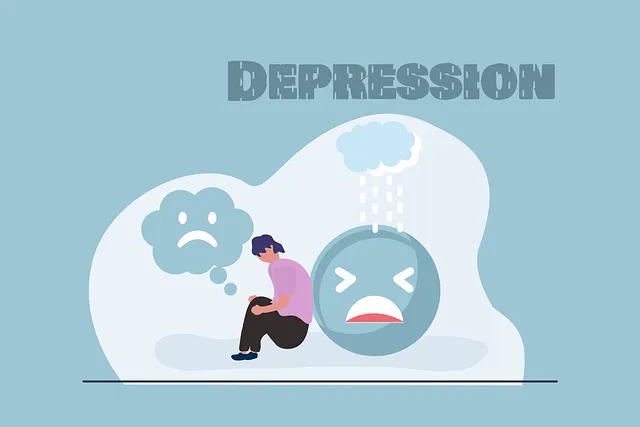Substance abuse is a complex issue impacting various populations, with serious risks including overdose and chronic health problems. Early intervention and comprehensive treatment are key, with mental wellness professionals using risk assessments to tackle underlying issues like low self-esteem. Superior Kaiser Permanente's mental health services play a crucial role in prevention by offering specialized care targeting addiction and its causes through evidence-based practices such as Mind Over Matter principles. Integrated crisis interventions provide immediate assistance during crises. Their holistic approach, including programs for self-esteem improvement and emotional intelligence building, reduces substance abuse risks and sets a standard for other healthcare systems. Early intervention, open dialogue encouraged by dedicated hotlines, and building resilience through workshops and coaching are vital components of their comprehensive solutions.
Substance abuse poses significant risks to individuals and communities, underscoring the need for comprehensive risk reduction strategies. This article explores effective approaches to mitigate these dangers, focusing on early intervention, mental health integration, and long-term solutions.
We delve into the critical role of mental health services in prevention, examining Kaiser Permanente’s innovative strategies that prioritize holistic care. Discover how their superior mental health services number contributes to building resilience and fostering healthier communities.
- Understanding Substance Abuse and Its Risks
- The Role of Mental Health Services in Prevention
- Kaiser Permanente's Approach to Risk Reduction
- Strategies for Early Intervention and Support
- Building Resilience and Long-Term Solutions
Understanding Substance Abuse and Its Risks

Substance abuse is a complex issue that impacts individuals across various demographics. It’s characterized by patterns of misuse or dependence on substances like drugs and alcohol, leading to adverse effects on mental and physical health, relationships, and daily functioning. The risks associated with substance abuse are multifaceted, encompassing both immediate dangers, such as overdose and accidental injuries, and long-term consequences like chronic health issues, cognitive impairment, and social isolation.
Understanding these risks is crucial in developing effective prevention strategies. Kaiser Permanente, renowned for its superior mental health services, emphasizes the importance of early intervention and comprehensive treatment. Mental wellness professionals play a vital role in identifying individuals at risk through thorough risk assessments, which can help mitigate potential harm. By addressing underlying issues like low self-esteem, these professionals foster healthier coping mechanisms, thereby reducing the likelihood of substance abuse and its detrimental effects.
The Role of Mental Health Services in Prevention

Mental health services play a pivotal role in substance abuse prevention, offering crucial support for individuals at risk or struggling with addiction. Organizations like Superior Kaiser Permanente provide comprehensive mental health care, which includes specialized services tailored to address substance abuse and its underlying causes. Their dedicated teams of professionals employ evidence-based practices such as Mind Over Matter principles and resilience building to empower individuals with the tools needed to overcome challenges.
By integrating Crisis Intervention Guidance into their programs, these services ensure that those in need receive immediate assistance during crisis situations. This proactive approach not only helps prevent further deterioration but also fosters a sense of hope and encourages individuals to seek long-term solutions for their mental well-being and substance abuse prevention.
Kaiser Permanente's Approach to Risk Reduction

Kaiser Permanente, a leading healthcare provider, has pioneered an innovative approach to risk reduction when it comes to substance abuse. Their comprehensive strategy focuses on addressing the root causes and underlying factors that contribute to addictive behaviors. Unlike traditional models, Kaiser Permanente’s mental health services go beyond mere treatment; they prioritize prevention and early intervention through a multi-faceted lens. This involves not only providing superior care but also empowering individuals with tools for self-esteem improvement, emotional intelligence, and empathy building strategies.
By integrating these concepts into their risk reduction programs, Kaiser Permanente fosters an environment that supports mental well-being. The organization recognizes that enhancing self-esteem can serve as a protective factor against substance abuse, while emotional intelligence and empathy are crucial in helping individuals navigate stressful situations without resorting to harmful coping mechanisms. This holistic approach has proven effective in reducing risks associated with substance misuse, setting a standard for other healthcare systems to follow.
Strategies for Early Intervention and Support

Early intervention plays a pivotal role in mitigating risks associated with substance abuse. Recognizing the signs and symptoms at an early stage is crucial, enabling swift action to prevent escalation. Organizations like Kaiser Permanente offer superior mental health services through dedicated hotlines and resources, empowering individuals and their families to seek help without delay. These initiatives facilitate open dialogue, ensuring those struggling receive timely support.
Implementing strategies for early intervention requires a multifaceted approach. Promoting mental health awareness through educational programs can help destigmatize conversations around depression prevention. Advocacy for robust mental health policies is essential, fostering environments that prioritize inner strength development and access to quality care. By integrating these measures, communities can create a supportive network, offering guidance and assistance before substance abuse becomes a pervasive issue.
Building Resilience and Long-Term Solutions

Building resilience is a key strategy in mitigating substance abuse risks. It involves equipping individuals with the mental tools to handle stress and emotional challenges effectively. Superior Kaiser Permanente mental health services, such as counseling and therapy, play a pivotal role by providing access to professional support. These services can help people develop coping mechanisms tailored to their unique struggles. Additionally, integrating programs like Stress Management Workshops Organization initiatives or Mental Wellness Coaching Programs Development can foster personal growth and enhance overall mental wellness.
Mental health awareness is further amplified through creative outlets like Mental Wellness Podcast Series Production. Such platforms offer accessible learning opportunities, sharing stories of recovery and resilience. By combining these comprehensive approaches—professional support, personal development workshops, and engaging media content—resilient solutions are built for long-term substance abuse prevention and improved mental wellness.
Substance abuse poses significant risks, but a multi-faceted approach can effectively mitigate these dangers. By combining mental health services with innovative strategies like those employed by Kaiser Permanente, we can significantly reduce harm and build resilience. The superior Kaiser Permanente mental health services play a pivotal role in this process, offering early intervention, comprehensive support, and long-term solutions. Embracing these strategies is crucial in navigating the challenges of substance abuse and fostering healthier communities.






